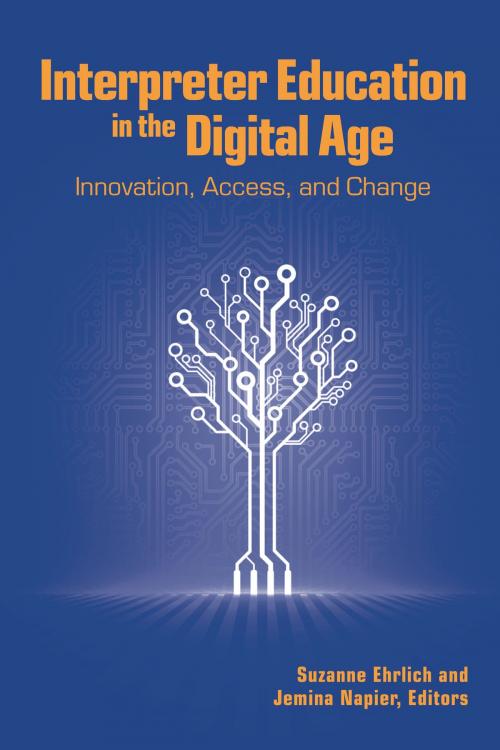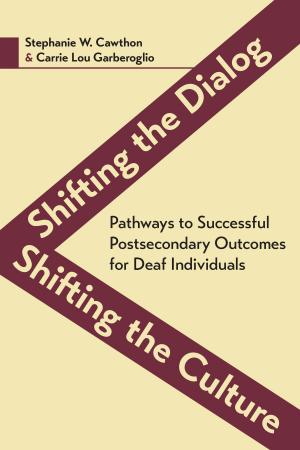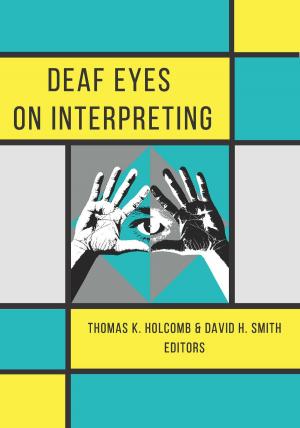Interpreter Education in the Digital Age
Innovation, Access, and Change
Nonfiction, Reference & Language, Education & Teaching, Educational Theory, Bilingual Education, Teaching| Author: | ISBN: | 9781563686399 | |
| Publisher: | Gallaudet University Press | Publication: | April 15, 2015 |
| Imprint: | Gallaudet University Press | Language: | English |
| Author: | |
| ISBN: | 9781563686399 |
| Publisher: | Gallaudet University Press |
| Publication: | April 15, 2015 |
| Imprint: | Gallaudet University Press |
| Language: | English |
This collection brings together innovative research and approaches for blended learning using digital technology in interpreter education for signed and spoken languages. Volume editors Suzanne Ehrlich and Jemina Napier call upon the expertise of 21 experts, including themselves, to report on the current technology used to provide digital enhancements to interpreter education in Australia, New Zealand, Brazil, Belgium, the United Kingdom, and the United States. Divided into three parts, Innovation, Change, and Community Engagement, this study focuses on the technology itself, rather than how technology enhances curriculum, delivery, or resources.
Initiatives described in this collection range from the implementation of on-demand interpreting using iPad technology to create personalized, small-group, multidimensional models suited to digital media for 160 languages; introducing students to interpreting in a 3D world through an IVY virtual environment; applying gaming principles to interpreter education; assessing the amenability of the digital pen in the hybrid mode of interpreting; developing multimedia content for both open access and structured interpreter education environments; to preparing interpreting students for interactions in social media forums, and more. Interpreter Education in the Digital Age provides a context for the application of technologies in interpreter education from an international viewpoint across languages and modalities.
This collection brings together innovative research and approaches for blended learning using digital technology in interpreter education for signed and spoken languages. Volume editors Suzanne Ehrlich and Jemina Napier call upon the expertise of 21 experts, including themselves, to report on the current technology used to provide digital enhancements to interpreter education in Australia, New Zealand, Brazil, Belgium, the United Kingdom, and the United States. Divided into three parts, Innovation, Change, and Community Engagement, this study focuses on the technology itself, rather than how technology enhances curriculum, delivery, or resources.
Initiatives described in this collection range from the implementation of on-demand interpreting using iPad technology to create personalized, small-group, multidimensional models suited to digital media for 160 languages; introducing students to interpreting in a 3D world through an IVY virtual environment; applying gaming principles to interpreter education; assessing the amenability of the digital pen in the hybrid mode of interpreting; developing multimedia content for both open access and structured interpreter education environments; to preparing interpreting students for interactions in social media forums, and more. Interpreter Education in the Digital Age provides a context for the application of technologies in interpreter education from an international viewpoint across languages and modalities.















